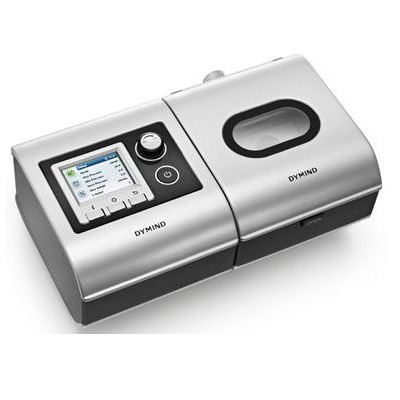Majority of Pediatricians Skip Developmental Screening
|
By HospiMedica International staff writers Posted on 19 Jul 2018 |
A new study claims that less than one-third of young children undergo a parent-completed developmental screening survey, and healthcare developmental surveillance visits rates are not substantially higher.
Researchers at the U.S. Health Resources and Services Administration (HRSA; Rockville, MD, USA), Johns Hopkins University (JHU; Baltimore, MD, USA), and other institutions conducted a cross-sectional analysis of the HRSA 2016 National Survey of Children’s Health in order to examine current prevalence and variation of developmental screening and surveillance of children by various socio-demographic, enabling, and health characteristics. The study included 5,668 randomly selected children 9-35 months of age whose parent or caregiver responded to an address-based survey by mail or via a website between June 2016 and February 2017.
All analyses were weighted to account for the probability of selection and non-response, and to reflect population counts of all non-institutionalized US children residing in a housing unit. Developmental screening was measured through a validated set of three items indicating receipt in the past year of parent-completed screening from a health care professional, with age-appropriate content regarding language development and social behavior. Surveillance was determined by an item capturing verbal elicitation of developmental concerns by a health care professional.
The results revealed that an estimated 30.4% of children received parent-completed developmental screening, and 37.1% were reported to have received developmental surveillance from a health care professional in the past year. Characteristics associated with screening and/or surveillance included primary household language, family structure, household education, income, medical home, past-year preventive visit, child health status, and special health care needs. The study was published on July 9, 2018, in JAMA Pediatrics.
“All in all, only one in five children received both screening and surveillance, and in no case were they higher than 39.1%, when analyzed according to various demographic and healthcare-related characteristics,” concluded lead author Ashley Hirai, PhD, of HRSA, and colleagues. “The prevalence of screening ranged from 17.2% in Mississippi to 58.8% in Oregon. Similarly, developmental surveillance ranged from 19.1% in Mississippi to 60.8% in Oregon.”
The authors suggest that systems-level quality improvement efforts that integrate the medical home and build on lessons learned from state-based initiatives are necessary to achieve universal screening and surveillance that optimizes early identification, intervention, and developmental trajectories for children with delays. They also suggest that more attention be paid to language barriers and cultural competencies, given the relatively low rate of screening among children from non-English-speaking households and of non-white ethnicity.
Related Links:
U.S. Health Resources and Services Administration
Johns Hopkins University
Researchers at the U.S. Health Resources and Services Administration (HRSA; Rockville, MD, USA), Johns Hopkins University (JHU; Baltimore, MD, USA), and other institutions conducted a cross-sectional analysis of the HRSA 2016 National Survey of Children’s Health in order to examine current prevalence and variation of developmental screening and surveillance of children by various socio-demographic, enabling, and health characteristics. The study included 5,668 randomly selected children 9-35 months of age whose parent or caregiver responded to an address-based survey by mail or via a website between June 2016 and February 2017.
All analyses were weighted to account for the probability of selection and non-response, and to reflect population counts of all non-institutionalized US children residing in a housing unit. Developmental screening was measured through a validated set of three items indicating receipt in the past year of parent-completed screening from a health care professional, with age-appropriate content regarding language development and social behavior. Surveillance was determined by an item capturing verbal elicitation of developmental concerns by a health care professional.
The results revealed that an estimated 30.4% of children received parent-completed developmental screening, and 37.1% were reported to have received developmental surveillance from a health care professional in the past year. Characteristics associated with screening and/or surveillance included primary household language, family structure, household education, income, medical home, past-year preventive visit, child health status, and special health care needs. The study was published on July 9, 2018, in JAMA Pediatrics.
“All in all, only one in five children received both screening and surveillance, and in no case were they higher than 39.1%, when analyzed according to various demographic and healthcare-related characteristics,” concluded lead author Ashley Hirai, PhD, of HRSA, and colleagues. “The prevalence of screening ranged from 17.2% in Mississippi to 58.8% in Oregon. Similarly, developmental surveillance ranged from 19.1% in Mississippi to 60.8% in Oregon.”
The authors suggest that systems-level quality improvement efforts that integrate the medical home and build on lessons learned from state-based initiatives are necessary to achieve universal screening and surveillance that optimizes early identification, intervention, and developmental trajectories for children with delays. They also suggest that more attention be paid to language barriers and cultural competencies, given the relatively low rate of screening among children from non-English-speaking households and of non-white ethnicity.
Related Links:
U.S. Health Resources and Services Administration
Johns Hopkins University
Latest Patient Care News
- Revolutionary Automatic IV-Line Flushing Device to Enhance Infusion Care
- VR Training Tool Combats Contamination of Portable Medical Equipment
- Portable Biosensor Platform to Reduce Hospital-Acquired Infections
- First-Of-Its-Kind Portable Germicidal Light Technology Disinfects High-Touch Clinical Surfaces in Seconds
- Surgical Capacity Optimization Solution Helps Hospitals Boost OR Utilization

- Game-Changing Innovation in Surgical Instrument Sterilization Significantly Improves OR Throughput
- Next Gen ICU Bed to Help Address Complex Critical Care Needs
- Groundbreaking AI-Powered UV-C Disinfection Technology Redefines Infection Control Landscape
- Clean Hospitals Can Reduce Antibiotic Resistance, Save Lives
- Smart Hospital Beds Improve Accuracy of Medical Diagnosis
- New Fast Endoscope Drying System Improves Productivity and Traceability
- World’s First Automated Endoscope Cleaner Fights Antimicrobial Resistance
- Portable High-Capacity Digital Stretcher Scales Provide Precision Weighing for Patients in ER
- Portable Clinical Scale with Remote Indicator Allows for Flexible Patient Weighing Use
- Innovative and Highly Customizable Medical Carts Offer Unlimited Configuration Possibilities
- Biomolecular Wound Healing Film Adheres to Sensitive Tissue and Releases Active Ingredients
Channels
Critical Care
view channel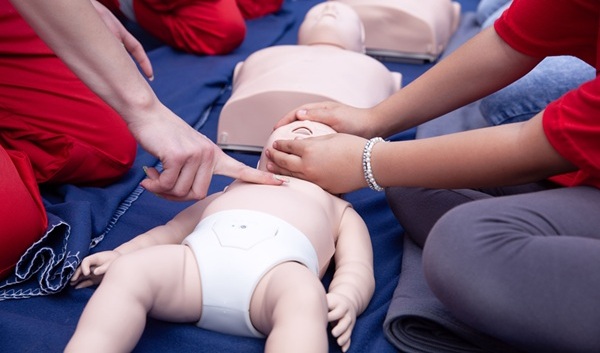
CPR Guidelines Updated for Pediatric and Neonatal Emergency Care and Resuscitation
Cardiac arrest in infants and children remains a leading cause of pediatric emergencies, with more than 7,000 out-of-hospital and 20,000 in-hospital cardiac arrests occurring annually in the United States.... Read more
Ingestible Capsule Monitors Intestinal Inflammation
Acute mesenteric ischemia—a life-threatening condition caused by blocked blood flow to the intestines—remains difficult to diagnose early because its symptoms often mimic common digestive problems.... Read more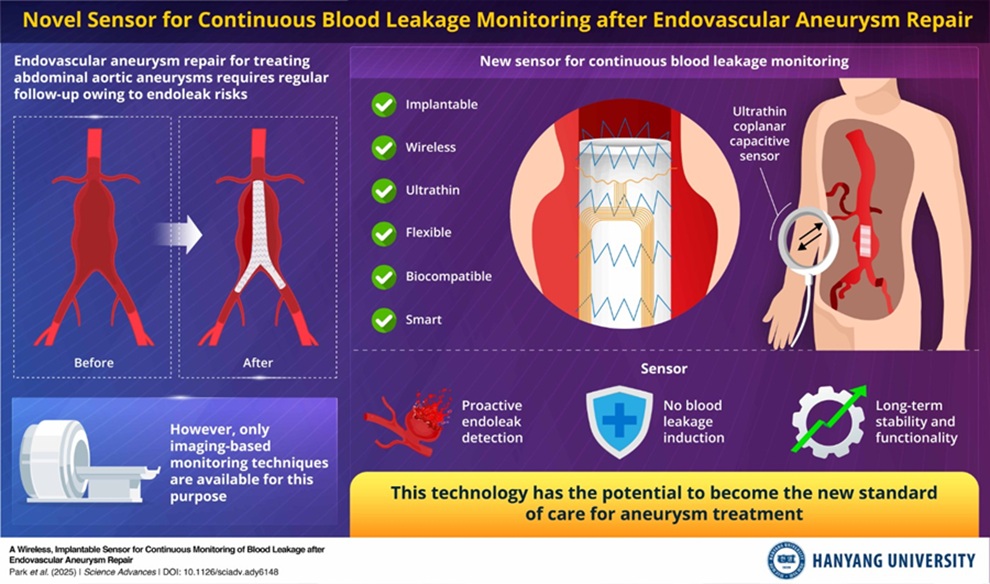
Wireless Implantable Sensor Enables Continuous Endoleak Monitoring
Endovascular aneurysm repair (EVAR) is a life-saving, minimally invasive treatment for abdominal aortic aneurysms—balloon-like bulges in the aorta that can rupture with fatal consequences.... Read more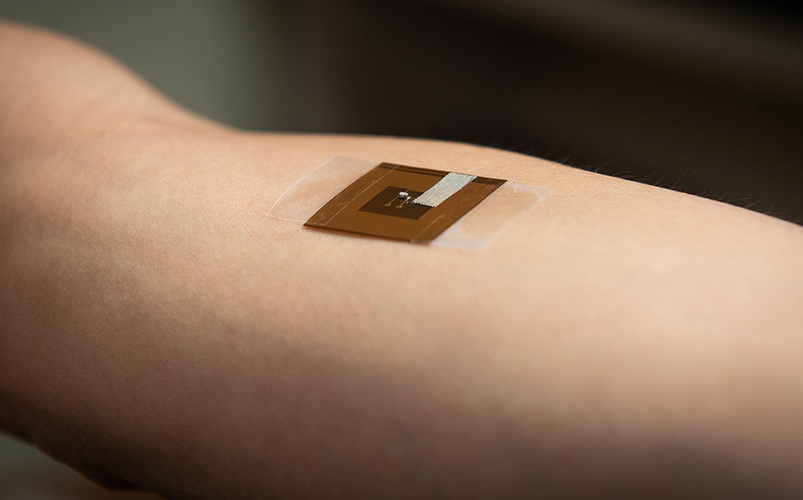
Wearable Patch for Early Skin Cancer Detection to Reduce Unnecessary Biopsies
Skin cancer remains one of the most dangerous and common cancers worldwide, with early detection crucial for improving survival rates. Traditional diagnostic methods—visual inspections, imaging, and biopsies—can... Read moreSurgical Techniques
view channel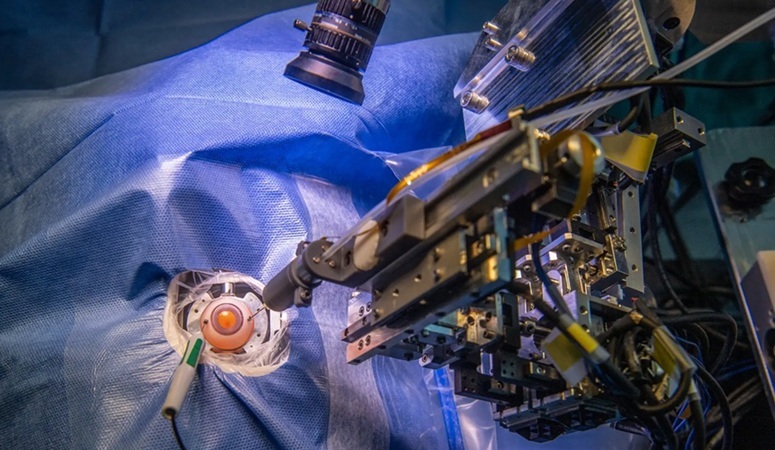
Robotic Assistant Delivers Ultra-Precision Injections with Rapid Setup Times
Age-related macular degeneration (AMD) is a leading cause of blindness worldwide, affecting nearly 200 million people, a figure expected to rise to 280 million by 2040. Current treatment involves doctors... Read more
Minimally Invasive Endoscopic Surgery Improves Severe Stroke Outcomes
Intracerebral hemorrhage, a type of stroke caused by bleeding deep within the brain, remains one of the most challenging neurological emergencies to treat. Accounting for about 15% of all strokes, it carries... Read moreHealth IT
view channel
Printable Molecule-Selective Nanoparticles Enable Mass Production of Wearable Biosensors
The future of medicine is likely to focus on the personalization of healthcare—understanding exactly what an individual requires and delivering the appropriate combination of nutrients, metabolites, and... Read moreBusiness
view channel
Philips and Masimo Partner to Advance Patient Monitoring Measurement Technologies
Royal Philips (Amsterdam, Netherlands) and Masimo (Irvine, California, USA) have renewed their multi-year strategic collaboration, combining Philips’ expertise in patient monitoring with Masimo’s noninvasive... Read more
B. Braun Acquires Digital Microsurgery Company True Digital Surgery
The high-end microsurgery market in neurosurgery, spine, and ENT is undergoing a significant transformation. Traditional analog microscopes are giving way to digital exoscopes, which provide improved visualization,... Read more
CMEF 2025 to Promote Holistic and High-Quality Development of Medical and Health Industry
The 92nd China International Medical Equipment Fair (CMEF 2025) Autumn Exhibition is scheduled to be held from September 26 to 29 at the China Import and Export Fair Complex (Canton Fair Complex) in Guangzhou.... Read more




